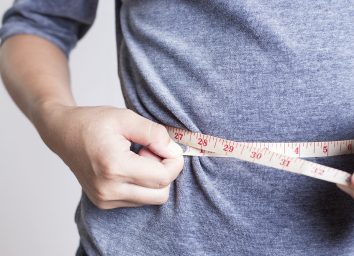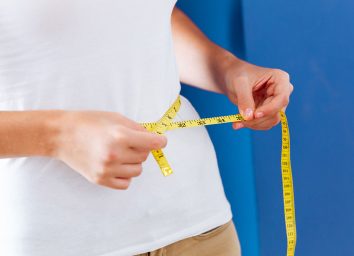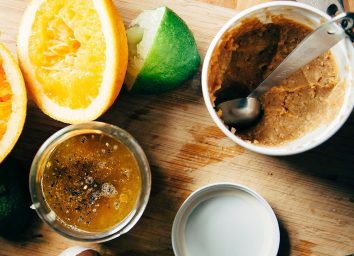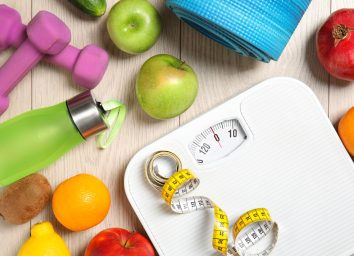How to Lose Belly Fat Right Now, According to a Dietitian
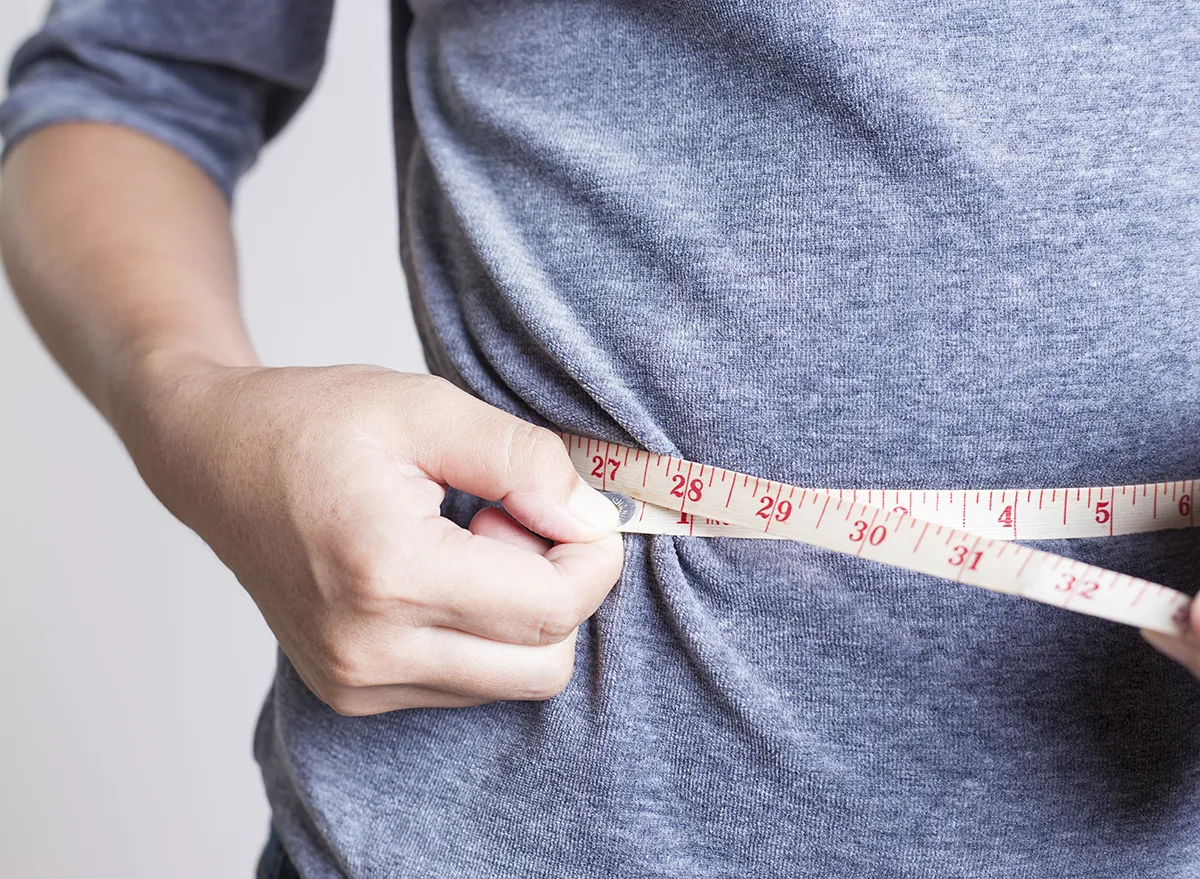
After seven months of over-consuming comfort food to soothe our coronavirus anxieties, it’s natural to want to lose the extra pounds we took on. So how do we lose the belly fat and avoid putting on more as we continue to stay homebound near a pantry full of snacks?
Some people can make sweeping lifestyle changes, but most find huge goals overwhelming, says Kristin Kirkpatrick, a registered dietitian for Cleveland Clinic and a nutritionist with a private nutrition practice in Denver, Colorado.
“I suggest the baby steps approach,” says Kirkpatrick. “Pick one thing that is the highest priority in terms of a habit that you want to change—like, ‘I have to stop having white bread and switch to 100 percent whole wheat’ or ‘I’m going to stop bread altogether.’ Master that before moving on to change number two.”
There’s no one best way to lose belly fat. “A lot of it depends on your personality and situation,” says Kirkpatrick. So, try these strategies she recommends to lose belly fat and see which are most effective for you, and for more healthy tips, check out our list of 21 Best Healthy Cooking Hacks of All Time.
Recognize your bad habit triggers.

Examine how your lifestyle may have changed in the past year, specifically in alcohol consumption, stress, sleep quality, and snacking.
“We have direct data showing an increase in alcohol consumption since COVID, and patients of mine have said they’re having a glass and a half every night, something they never did before,” says Kirkpatrick. “There is a correlation between excess alcohol and belly fat. Couple that with the stress that COVID brought, and we know there are associations with increases in (the stress hormone) cortisol and belly fat. And then there’s lack of sleep which will essentially flip flop our two main digestive hormones that are responsible for telling us when to eat and when to stop eating. Habitual lack of sleep can turn on the signal—I want to eat, I want to eat—and you won’t be searching for a great bowl of broccoli, you’ll be searching for pizza. Excess snacking may be another cause of weight gain.”
By first recognizing how your habits have changed in recent months, you can start to reverse those triggers of weight gain, she says. And speaking of drinking, here’s What Happens To Your Body When You Give Up Alcohol.
Don’t follow a specific diet; just simplify it.
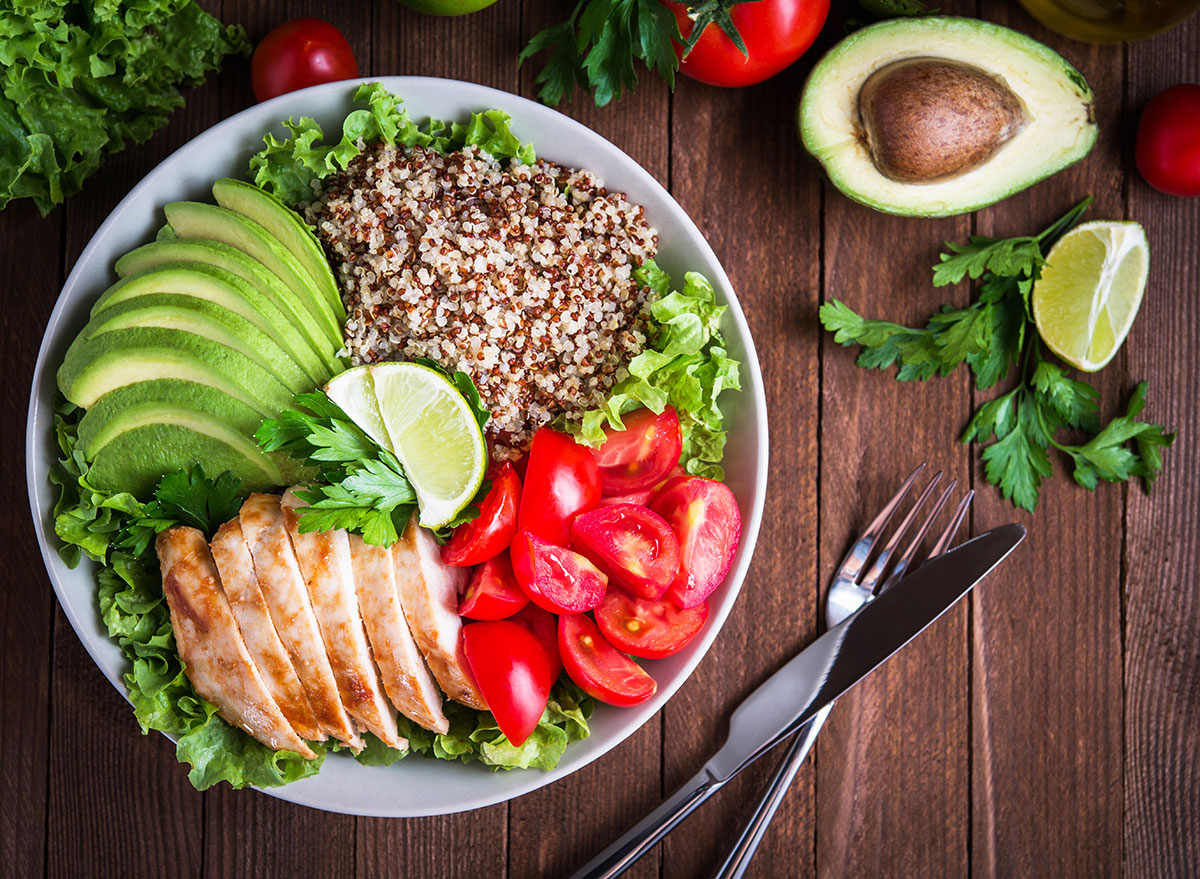
“By the time they come to me, most of my patients have tried and failed at a dozen diets,” says Kirkpatrick. “Look, we’ve become overly complex with our dietary habits. It’s probably because there are a million diet books and all these suggestions on social media that have created so much confusion. So, I think we should take a more basic approach. If you look at any place globally where people live long lives and are not morbidly obese, they aren’t reading diet books. They eat simple, whole foods. Michael Pollan has some genius definitions of real food: In his book In Defense of Food, he wrote ‘don’t eat anything incapable of rotting.’ I tell my clients to make 80 to 90 percent of your diet real whole foods, not processed. And then the 10 percent or so can be your favorite sweet coffee drink or whatever.”
Pick up some healthier eating patterns instead with these 21 Healthy Eating Habits That Help You Lose Weight.
Try intermittent fasting.
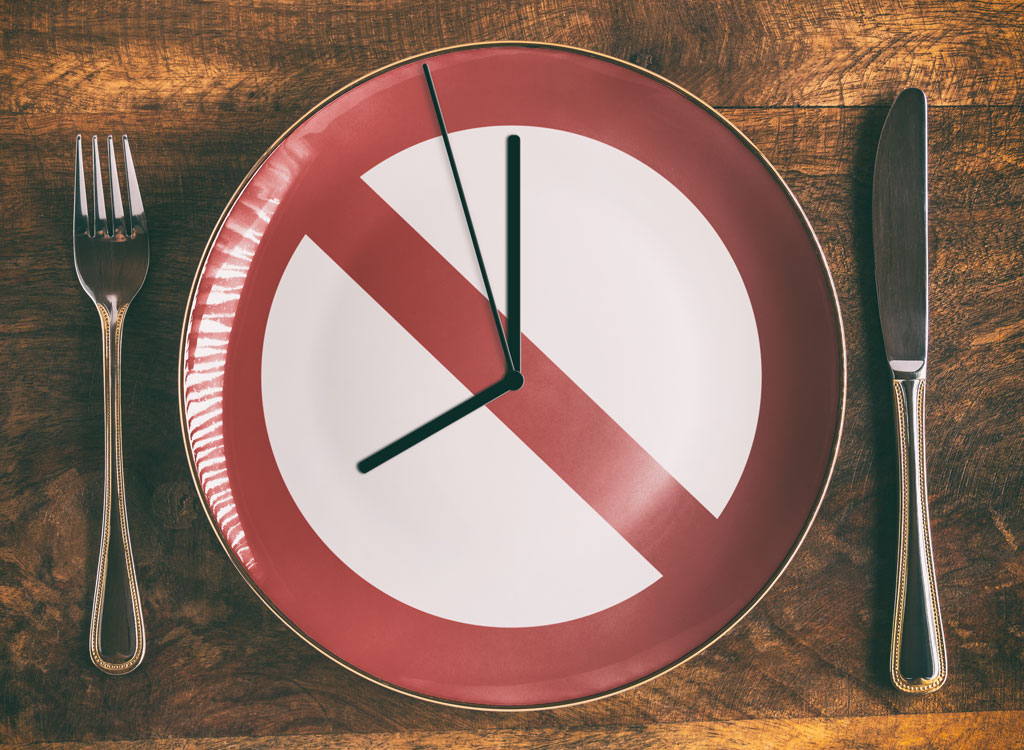
For some people, changing what they eat is not the best first step.
“For the first four or five weeks, I don’t change anything my patients eat; I simply change the frequency of their eating,” says Kirkpatrick. “So, that’s where the intermittent fasting comes in.”
One popular intermittent fast, the 16/8 IM fast, involves eating only during an 8-hour window, between, say, noon and 8 p.m., and fasting for the remaining 16 hours.
“Intermittent fasting is useful because your body isn’t necessarily tapping into carbs but tapping into and reducing fat,” says Kirkpatrick. “Some other benefits are, if you look at the studies, you have unintentional calories loss, a reduction in hunger, and some positive changes in metabolism just from the aspect of eating less often. And if you can lose 10 pounds over six weeks with an intermittent fast that can really be a motivating factor to say, ‘Wow, this feels great. Where can I make other changes?'”
Here’s What Happens To Your Body On The Intermittent Fasting Diet.
Avoid highly palatable foods.

One effective way to lose weight and reduce abdominal fat is to eliminate what researchers call ‘highly palatable foods’ from your diet,” says Kirkpatrick.
“These are foods that combine two elements like fat and sugar or sodium and carbohydrate—think doughnuts, pizza, corn chips. Those foods are very hard to stop eating. So, eliminate those foods that are too easy to overeat.” And you also may want to steer clear of these 21 Unhealthiest Carbs on the Planet.
Reduce empty calories.

“A lot of people fail to lose weight because they give themselves these gigantic goals that are not attainable,” says Kirkpatrick. “So, pick a smaller goal that can have a huge impact, like reducing sugar. Sugar is a great example of a throwaway, mindless food where you can sit on the couch and you can swallow 1,000 calories worth of sugar and still not feel satisfied or full. Start with sweet drinks and soda. We are drowning in soda and it’s costing us our health. Giving up a 12-ounce can of cola (that’s 140 calories) for water or a naturally flavored seltzer can help you lose 14 pounds a year.”
Need more encouragement to stop drinking soda? Check out 17 Things That Happen to Your Body When You Drink Soda.
Have an extra cup of (black) coffee.
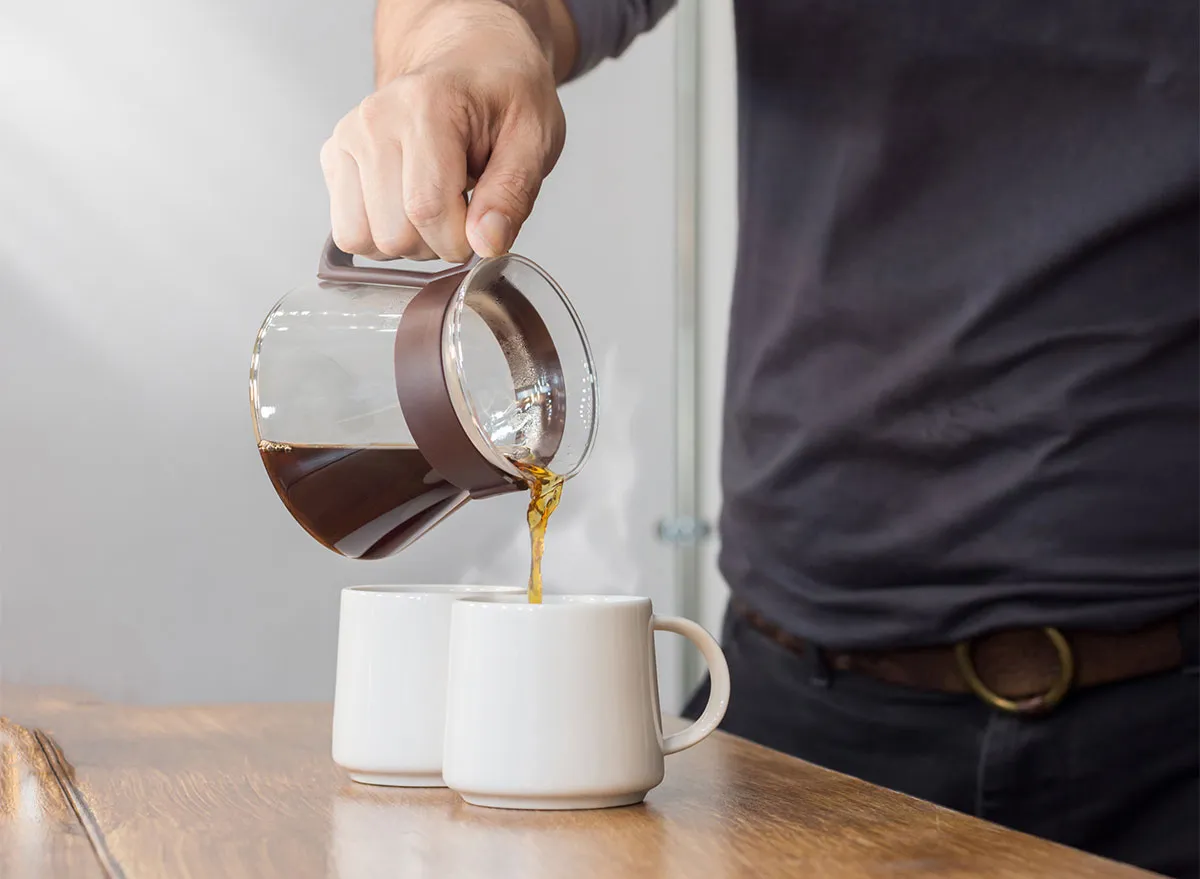
A 2020 study in the Journal of Nutrition found a significant association between higher coffee consumption and lower adiposity or body fat percentage. Using data from the large National Health and Nutrition Examination Survey (NHANES), researchers determined that women (but not men) who drank two to three cups of coffee a day had less overall fat and less trunk fat than women who drank no coffee.
“There are probably a lot of factors going on here, including the antioxidants in coffee and other components like caffeine,” says Kirkpatrick of the study.
But, she warns, don’t expect to lose weight if you get your coffee in the form of a huge, sugary coffee drink. “There can be 74 grams of sugar in some flavored coffee beverages,” she says. “You might as well go to an ice cream shop and get a milkshake.” You can sweeten your coffee with a little sugar if you enjoy it that way but recognize where the excess sugar in your diet is coming from. It might surprise you.
Here’s Why You Need Antioxidants In Your Diet—And How To Eat More Of Them.
